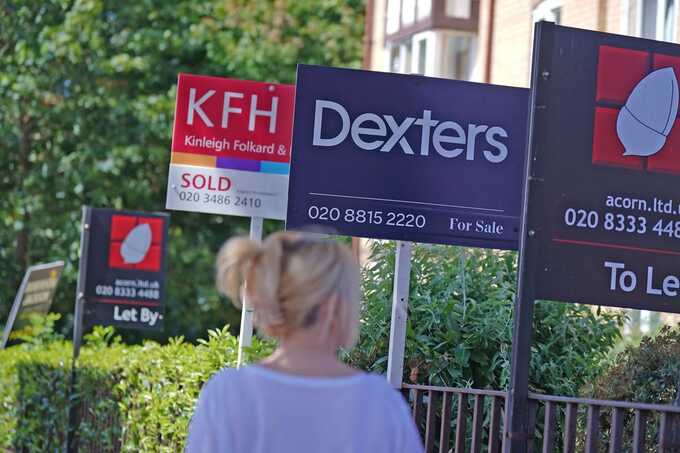Over 15,000 renters risk eviction before the no-fault ban is implemented

Thousands of tenants could be kicked out of their homes before legislation to ban no-fault evictions comes into effect, a campaign group has warned.
The Renters’ Rights Bill was one of the first to be introduced by the current Labour government, coming after long-delayed similar proposals from the Tories were finally scrapped ahead of the general election.
Tenants are promised more rights to challenge unfair rent increases in the current version of the bill, while Awaab’s Law – which targets landlords who do not fix mouldy homes – would be extended to the private sector.
And Section 21 orders, also known as no-fault evictions, would be banned – meaning renters can feel more secure in their homes.
But the Renters Reform Coalition (RRC), which brings together 21 organisations supporting private renters, says such orders could be used thousands of times during the wait for the bill to become law.
If current trends continue, they said, more than 15,600 rental households will be evicted by bailiffs in the first six months of 2025 – a 12.2% increase on the first half of last year.
The proposed legislation began 2025 having passed through its first and second reading and scrutiny from a parliamentary committee.
Today, it is expected to complete its report stage and a third reading in the House of Commons. From there, it will face careful analysis by the House of Lords before it receives royal assent.
Lucy Tiller, policy manager for the RRC, believes assent for the legislation may come in the spring and its measures are likely to come into force this summer.
However, she pointed out that the number of no-fault evictions is currently at an eight-year high.
She said: ‘Some of the increase is because there was a massive downturn during the pandemic and we just still on the increase from that, but it is definitely the case that there are a huge number of Section 21 evictions going through at the moment.
‘We think, since the last government pledged in 2019 to ban Section 21s, over 100,000 households have been threatened with homelessness and 1,000,000 have received Section 21 evictions, so these are huge numbers.’
The coalition used statistics from the Ministry of Justice to estimate there will be 15,637 ‘landlord repossession actions’ in the first half of this year, based on the increases recorded between 2023 and 2024. The number includes private, council, and housing association rental households.
In September last year, Citizens Advice reported that they were receiving an average of 100 people every day asking for help with no-fault evictions.
The organisation said more than 70% of the people they supported in 2024 were facing homelessness as a result of being served the notice.
And at the 2024 Labour conference, RRC director Tom Darling said he had heard landlords warn of a ‘wave of evictions’ before the Section 21 ban came into effect.

Housing Secretary and Deputy PM Angela Rayner introduced the bill to the House soon after July’s election (Picture: Jane Barlow/PA Wire)
Ahead of the latest phase of the bill’s progress, Housing Secretary Angela Rayner laid two amendments limiting the amount of rent landlords can demand up front to a month.
The move was praised by the RRC, which described ‘horror stories’ of prospective tenants being asked to pay a year of rent in advance to secure a home.
However, the coalition has also called for an amendment to restrict how much rent can be raised during a tenancy, saying a massive hike can be used by some landlords to force a de facto eviction.
Polly Neate, chief executive of Shelter – one of the coalition’s members – said: ‘To truly make renting more secure and affordable, the bill must limit in-tenancy rent increases in line with either inflation or wage growth.
‘It must also stamp out the other discriminatory practices, like unnecessary demands for guarantors, that drive homelessness by locking people out of private renting.’
A Ministry for Housing, Communities and Local Government spokesperson said: ‘Our Renters’ Rights Bill will deliver on our promise to transform the private rented sector, so that people can put down roots and save for the future without fear of being evicted on a whim – including plans to end ‘no fault’ evictions for all existing and new tenants at the same time.
‘Through our Plan for Change, we will tackle the wider housing crisis we inherited head on, building the homes we need, delivering the biggest boost in social and affordable housing in a generation.’
Read more similar news:
Comments:
comments powered by Disqus

































